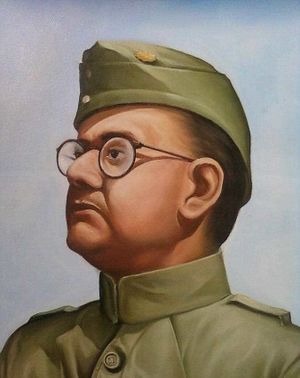Archive:Yekhar Ṅacraś
- This is an East Mirarian name. The native form of this personal name is Ṅacraś Yekhar Śarīyẹnuś. This article uses Western name order when mentioning individuals.
| Yekhar Ṅacraś | |
|---|---|
 | |
| Grand Steward of Farmosh | |
| In office September 11 1936 – March 1 1962 | |
| Succeeded by | Dẹbaṅ Ṅaṅīwẹwuś |
| Personal details | |
| Born | July 19, 1884 |
| Died | March 1, 1962 (aged 77) Balcassard, Farmosh |
| Nationality | Farmoshi |
| Political party | Milevian Liberation Front |
| Religion | Hurodism |
| Part of a series on |
| Balkism |
|---|
 |
| V•T•E |
Yekhar Ṅacraś Śarīyẹnuś (Farmoshi: ŋacraš jekqar šaríjænyš, tr. Ṅacraś Yekhar Śarīyẹnuś [ŋət͡ɕrəɕ jekʰər ɕəri:jɛnʉɕ]) was a Farmoshi politician. Governing the country from 1936 to his death in 1962, he served as the Xth Grand Steward of Farmosh. Although ideologically a Balkist, his ideals differed from those of orthodox Balkists, with his own policies coming to be known as Nacrasism.
Ṅacraś's leadership oversaw a number of dramatic shifts and reversals in the country's foreign and domestic policy, bringing an end to a period of isolationism. He spearheaded reconciliation between Farmosh and the Helsonian Union, agreeing to drop Farmosh's territorial claims in the Republic of Kaisen and Czisilia in return for allowing Balkists to run for office. Farmosh would later support Helsonia during the Pashaist Revolts in Milevia and align with Helsonia's Kuulist bloc after the Great Ekuosian War. Under Ṅacraś Farmosh became more active within the international community and attained membership in the International Congress in X.
Following Ṅacraś's election Farmosh adopted the Helsonian one-party system of government, after which the persecution of, and discrimination against Pashaists became official state policy. While initially a Pashaist himself, Ṅacraś later renounced his faith, seeing it as incompatible with both the traditional Milevic way of life and the country's anti-imperialist effort. Pashaists were officially forbidden to run for a seat in the Stewards' Council, and heavy restrictions on various aspects of Pashaist life and religion were introduced. These restrictions helped to fuel dissent, culminating in Pashaist Revolts across Milevia. As revolts continued in Czisilia and evolved into a civil war, Farmosh accepted Hurodist Czisil refugees, with Pashaist refugees being given an ultimatum to renounce their faith or be turned away.
Despite Ṅacraś's infamy and actions a number of Farmoshis revere him as a national hero.
Early life
Ṅacraś was born into the Śarīyẹnuś clan of northern Farmosh. The clan had converted to Pashaism shortly after the Terminian Empire began to assert control over different regions of the collapsing Milevic Empire. X. Ṅacraś went on to study Pashaist theology at the University of Phamphar at the age of [age], joining the youth wing of the Milevian Liberation Front at around the same time.
Renunciation of Pashaism
Though once devout, Ṅacraś began to question his Pashaist faith shortly prior to completing his university education. His chief concern was the compatibility of the Pashaist faith with Milevic culture and the Balkist effort. In his first major publication, [name], Ṅacraś equated forced conversion to Pashaism with the imperialism of the contemporary Terminian invaders who brought the religion to Milevia. Citing the religion's apparent continuous need for proselytising and expansion, he claimed that the Pashaist faith "could not possibly co-exist with the anti-imperialist efforts undertaken by our great nation", and that in order to truly integrate Pashaists, the very foundations of their religion would perhaps need to be "drastically and fundamentally reformed". Other conflicting aspects of Pashaist and traditional Milevic culture included the Pashaist view of the environment being an extension of Muhe's chaos running contrary to the traditional Milevic sanctification of nature. Ṅacraś publicly renounced his Pashaist faith and embraced Milevic Hurodism in [year], shortly after the publication of [name]. X.
Political ideology
Nacrasism was an development of Balkism, and it incorporated elements of populism and statism. Contrary to traditional Balkist thought, Ṅacraś supported the centralisation of the Milevic Hurodist religion as a means to help unite the Milevic peoples within the country and overseas. Conversely, Pashaism was deemed a "religion of imperialism," and as such it was claimed that its mere presence within Farmosh undermined the Balkist effort. Ṅacraś believed that a strong leadership would serve to bolster the state's resistance to certain foreign influences, such as X.